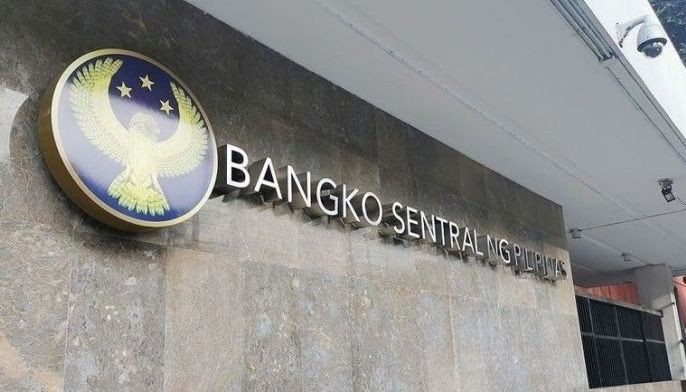Notes on the beat
MANILA, Philippines — It all started with a chatty BSP “ghost.”
Like most ghosts, the ghost employees of the Bangko Sentral ng Pilipinas were discovered because one of them made his or her presence felt – like a poltergeist of sorts in German folklore or those that make rattling or eerie sounds.
Late last year, one of them boasted in a chat group about being able to receive a salary from the BSP for doing nothing, sources said.
Some of those in the group were regular government employees and when they learned of such braggadocio, they cringed in disbelief. They were shocked to hear that such a thing would be possible in a respectable institution like the BSP. If true, they felt it was unfair that one would get hefty paychecks and bonuses for doing nothing while others were sweating it out.
Since then, whispers in hushed tones about the existence of ghost employees in the BSP started haunting the walls of the central bank.
BSP authorities got wind of the rumors, prompting its legal department to launch an internal investigation into the matter. However, it put investigators in a bind of sorts because it involved members of the Monetary Board, the highest policy-making body of the BSP.
Nevertheless, the investigation proceeded, although quietly. BSP insiders didn’t want the matter to be known in public perhaps because it involved members of the Monetary Board.
On May 10, Bilyonaryo broke the story about the existence of ghost employees under two members of the Monetary Board.
In industry parlance, a ghost employee is one who receives pay even though he or she is not employed. It could be a deceased employee who was not removed from the roster by accident, but often, it is an entity used to purposely commit fraud.
Prestigious institution
Hearing ghost stories – the supernatural kind – in the sprawling BSP headquarters along Roxas Boulevard in Manila isn’t new. The BSP complex after all had seen deaths during wars of the past. Within the complex is Fort San Antonio Abad, supposedly the site of multiple executions by hanging during the Philippine-American War. Thus, sources said, it was not surprising that ghost stories would be passed on to generations of BSP employees.
But ghost employees are a different matter. It’s the first time in recent history that such an issue is hounding the BSP, especially since the central bank is regarded as a prestigious and professional institution, unlike some government offices.
It is an attractive workplace for many because of its competitive compensation and retirement packages.
The BSP attracts a large number of job applicants and competition can be intense. The hiring process takes months, sometimes years, before an applicant is accepted in the esteemed institution.
Asked about ghost employees in the BSP, former BSP governor Felipe Medalla said he did not hear about it during his time as central bank chief from June 30, 2022 to July 2, 2023.
Rank and file employees got wind of the rumors and were demoralized. They didn’t think it could happen in BSP.
“Hindi ganyan ang BSP,” a longtime BSP employee lamented.
A former Monetary Board (MB) member said the BSP has always been professional, and especially so during the terms of BSP governors Rafael Buenaventura (July 6, 1999 to July 3, 2005) and Amando Tetangco Jr. (July 4, 2005 to July 3, 2017).
“Before, we only had a nominal allowance and I just had one assistant,” said the former MB member.
The new BSP charter created in July 1993 made MB members full time with very good salaries and benefits.
Some BSP insiders said the central bank started getting “politicized” during the term of former BSP governor Benjamin Diokno, who was appointed by President Duterte following the death of BSP governor Nestor Espenilla. Diokno served as BSP chief from March 4, 2019 to June 30, 2022. The STAR tried to get a comment from Diokno, but there was no response as of yesterday.
The investigation
A source told The STAR there were six employees involved in the case and four of them were so-called ghost employees. Of the four, three ghost staff worked for one Monetary Board member while the fourth employee worked for another.
These employees received salaries and bonuses. While they were discovered only in late 2023, sources said they may have been in the BSP’s payroll for two years.
One of the ghost employees was even given an award for “perfect attendance,” said another source.
Five out of the six employees already resigned as of March 1, 2024. One more employee has yet to hand in his or her resignation letter to the BSP.
The administrative and disciplinary charges were filed in March, but proceedings may take a few more weeks as the BSP is giving these employees a chance to explain their side of the story, sources said.
If they are found guilty, the ghost employees would be asked to return all the money they received from the BSP, which is a “significant amount,” a source said.
“So now, the process is investigating the ghost employees themselves. Giving them a chance to explain. That’s where the effort is focused. With regard to their bosses, that’s up to the Office of the President,” the source said.
Monetary Board members, who are responsible for overseeing the BSP and the country’s monetary policy, fall outside the BSP’s direct authority and may only be removed for a cause by the president of the Philippines.
“The BSP has no say on what happens but the central bank would very much like an orderly exit if necessary,” the source said.
Credibility is crucial for effective monetary policy, and the BSP recognizes the gravity of the situation. It is essential to address these issues to ensure transparency, accountability and efficient use of public funds.


